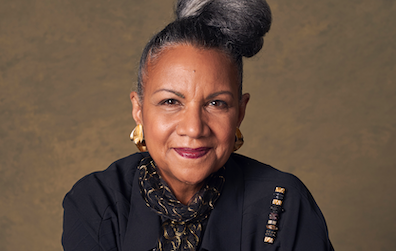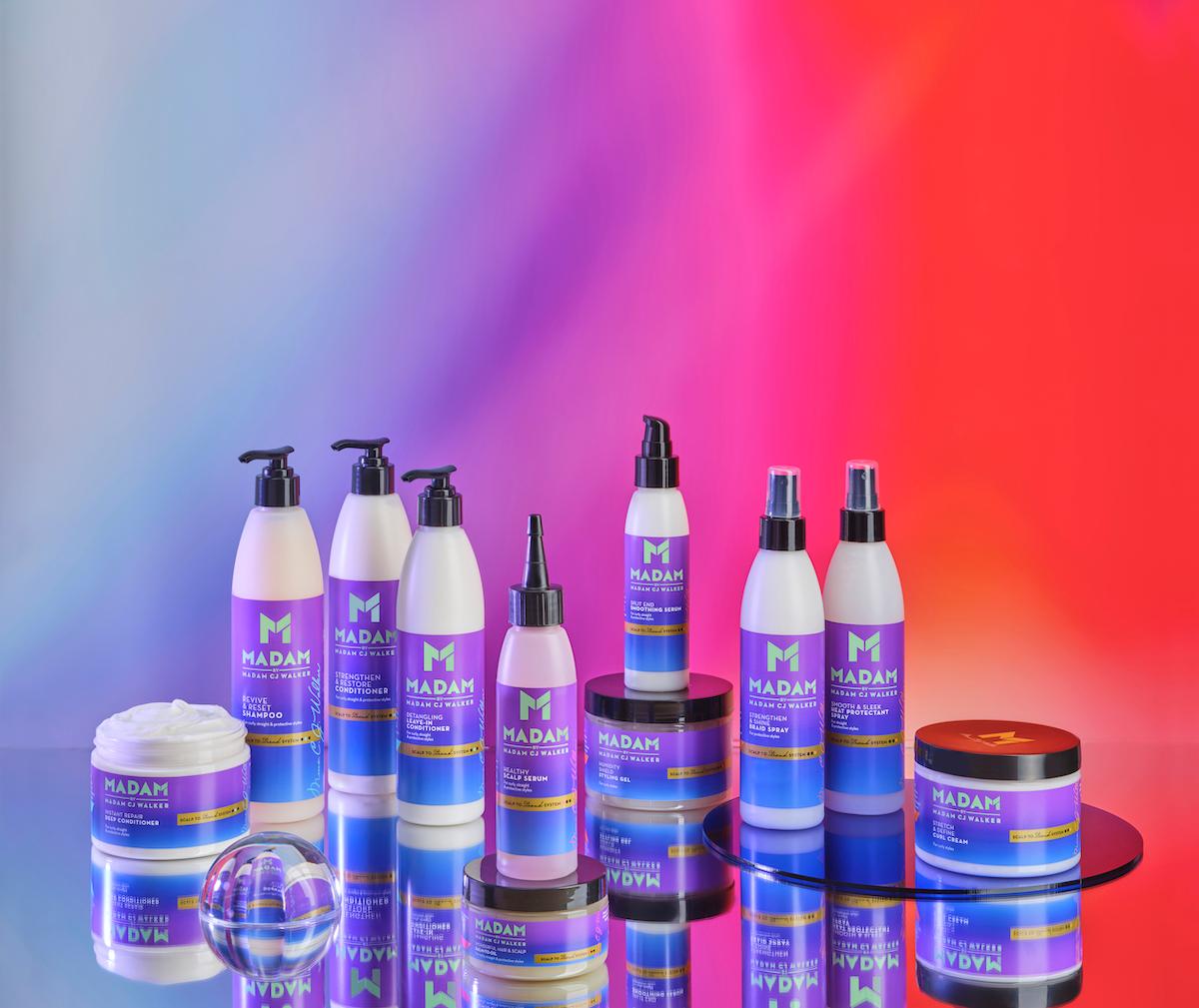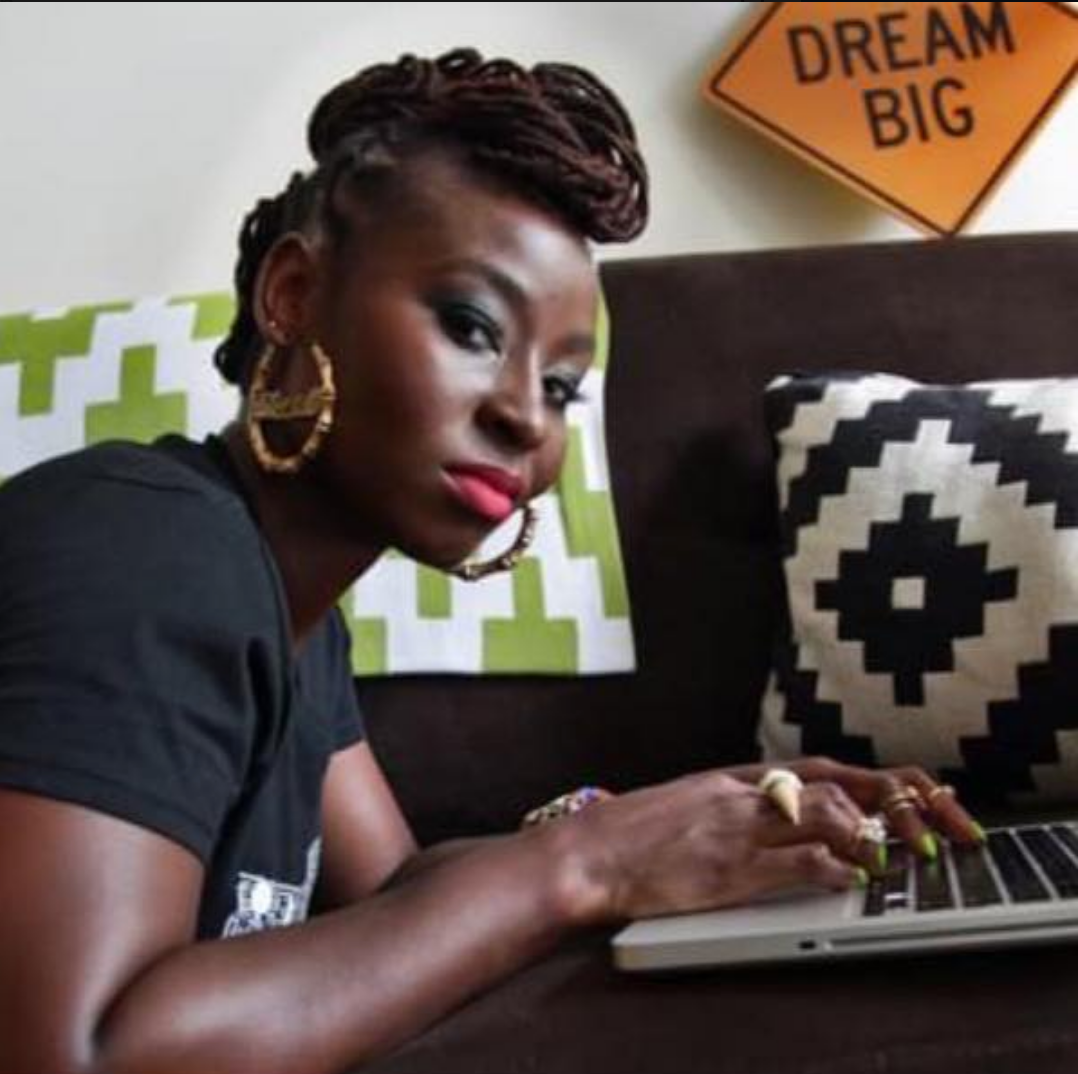A’Lelia Bundles Talks MADAM By Madam C.J. Walker Launch And Black Haircare Legacy

The best way to describe Madam C.J. Walker in modern terms is that she was a pioneering Black haircare influencer. Historically speaking, her status as a Black haircare icon began in the early 1900s, when she embarked on an entrepreneurial journey that changed the face of the industry forever. She created an industry for women who were underserved and overlooked, and her bravery and innovation led her to be documented as the first self-made woman millionaire in American history.
Today, over a century later, Madam C.J. Walker’s business is going through a renaissance spearheaded by Sundial Brands. Earlier this year, it launched MADAM by Madam C.J. Walker, a line of 11 products including shampoo, conditioner, gel, pomade, and more — that are free of parabens, alcohol sulfates, and petrolatum — with the spirit of its founder in mind, as well as that of the modern-day kinky/curly haircare consumer.
Working with Sundial Brands on preserving Madam C.J. Walker’s legacy and the estate is A’Lelia Bundles, Walker’s great-great-granddaughter. Bundles, author of On Her Own Ground: The Life and Times of Madam C. J. Walker, the New York Times Notable Book and the nonfiction biography that was the factual inspiration for Self Made, the fictional Netflix series starring Octavia Spencer, is excited about keeping her family’s history and legacy alive, but also the direction in which the brand is going. Here, she chats with Her Agenda about how she got into the family business, and how Sundial’s conscious business ethos is introducing Madam C.J. Walker to new generations, and more.
Her Agenda: Tell me about the line that launched early this year and how the product formulations tap into the work that Madam C.J. Walker put in.
A’Lelia Bundles: It really just pays homage to Madam Walker. Being inspired by her original formula, Madam Walker’s Wonderful Hair Grower, which was an ointment that healed scalp infections. And so we don’t have exactly the same problems that we had then. We’ve taken a hundred years’ worth of research and development and science and technology to really focus on her original goal, which was to have healthy scalps in order to have healthy hair, to give you styling options. So that’s where we are. It’s just really exciting to be inspired by her and to now have these updated formulas.
And I know you’re not a chemist, but you’re a historian. So what’s been your involvement in the process of creating these products?
You’re right. I’m not a chemist, even though I grew up with both of my parents involved in the haircare business. My mom was vice president of the Madam C.J. Walker manufacturing company. My dad worked for the Walker company for a little while after they were married, but then he was hired away to be president of Summit Laboratories, which was another Black haircare company during that period of time. But I would go with my mom to her office in Indianapolis, in the Walker Building, and go to the factory, watch the ladies mix the products up. So, I had some of that in my DNA.
But yes, my real passion was writing and my parents really encouraged that. So, while I never thought I would be in the family business, I thought I would be a writer. All of those things came full circle once I started writing about Madam Walker and telling her story. And I think when I was growing up, the Walker company, where it had been a big deal for many, many decades, by the 1950s and 1960s, was just one of many Black companies. And it wasn’t a major player, but my telling of the story over these last really 50 years, which is hard for me to believe, has helped to bring her story alive for people and really try to make it contemporary. So, my role has been having these parents who were involved in the business, having this amazing family story, and then using my skills as a journalist and as a storyteller to try to make her available, and make her story accessible to a contemporary audience.

I love that you didn’t necessarily think you were going to be telling her story, but here you are. I mean her story is gold, especially for someone who’s a writer!
Exactly. And I don’t know if you’ve heard this story, but when I was at Columbia, in graduate school, my advisor was Phyllis Garland, the only Black woman on the faculty at Columbia’s Graduate School of Journalism. And I gave her some boring topics for my master’s paper. And at the end of the conversation, she said, “Your name is A’Lelia. Do you have any connections with Madam Walker and A’Lelia Walker?” And I think she knew the answer but I wasn’t walking around telling people that. And I said, “Yeah, that’s my family.” She said, “That’s what you’re going to write about.” So that was 1975 and she put me on that path.
Fast forward, when we are starting to talk about this line, Cara Sabin, as you know, is the CEO of Sundial Brands and Shea Moisture and the parent for MADAM by Madam C.J. Walker, and Cara was so wonderful about involving me in every aspect, of talking with the creative team, as they were figuring out the concept, of looking at the packaging, of looking at the fragrances, all of those kinds of things. So I felt like I was very much involved in what was going on and this idea of this scalp to strand concepts of healthy scalps and styling versatility.
In a lot of ways, your great-great-grandmother was one of the first beauty influencers. What do you think she would make of what’s happening now especially since we do so much stuff with our hair now?
You’re so right. She was an early beauty influencer. She would be all over TikTok and Instagram because she really did understand the power of images. When you look at her very first ad, her very first ad is a picture of her before she started using her Wonderful Hair Grower and where she’s losing her hair. And then there’s a before and after on either side where you see a front view and a back view where her hair now is full and bushy. She used her own image, but she understood that in order to convince people that your product works, you have to show it to them. She used an early version of PowerPoint, with glass slides, with a projector. And as she would travel around making speeches, she would show these images of not just her products but of black schools and colleges and organizations.
There were other companies, white-owned companies that used before and after, but the before would be a drawing of a black woman whose skin was looking bad and whose hair was sticking all out. And then the after picture would basically be a European woman.
And so as an influencer, she said, “We are going to center our own beauty.” There were other black haircare products on the market, but she was a master marketer, and as she sold these products and traveled around, she knew women needed the products and wanted the products, but she also realized that what they really needed was education and jobs. And so the hair, in some ways, became a means to an end.
One of the most remarkable things about Madam Walker is that we are here, more than 100 years later, and the brand is still alive and flourishing. I know there have been ups and downs and changes over the years, but that being said, what are some of the most important business lessons that you’ve learned from your great-great-grandmother?
She was such a master marketer that every time I do an Instagram post, I’m thinking, “OK, she was doing this a long time ago,” but I would say is, she really did understand some really key business lessons that are still applicable today. And she would say, “First you have to have a great product or a great service.” There’s just no substitute for high-quality ingredients. And then you have to market it. You have to understand who your market is, and then you have to give back. And that was as much a part of her business model as anything else. When she had her 1917 convention of her sales agents, she gave prizes not just to the women who sold the most products, but to the women who gave the most to charity. And at the end of the convention, the women sent a telegram to President Woodrow Wilson, urging him to support legislation, to make lynching a federal crime.
I would say those three things. It’s a great product, market well, promote your product and then be able to give back. But there are two other things that I would just mention and it’s that, surround yourself with a great team. She was really, really smart about that. Her attorney was a key to her success. The woman who was the manager of her factory was the former Dean of girls at a black boarding school, and that great team is part of the reason we still know who she is because they kept all her letters, her business records, all of those kinds of things that allow me to tell the story.
And then the other part of it is empowering women, because part of the beauty of her story for me is that when she was still a poor uneducated washerwoman in St. Louis, making $1.50 a week. It was the women of her church, St. Paul African Methodist Episcopal Church, who saw something in this washerwoman, made sure her daughter was going to school, and helped her begin to have a vision of herself as something other than an illiterate washerwoman. And she observed what they were doing. She was a member of the choir.
She didn’t have a lot of money, but she could sing. She was a member of the Missionary Society. She might only be able to put a penny in a week, but she put something in. But she saw the model of those women working together. So that by the time she started organizing her agents and having her convention, she had that model of being mentored and being able to turn around and mentor and empower other women.
And speaking of business and entrepreneurship: A lot of times Black-owned businesses, when they grow, that journey might include selling the company or going under the umbrella of ownership that isn’t Black, which can sometimes upset consumers. This happened with Sundial. What is your take on that?
It’s a great question because I think we feel such affinity and such ownership for the brands and we want the brands to express who we are. And certainly, in the case of MADAM by Madam C.J. Walker, there’s an interesting story there for me. And it’s that my family was involved in the business through the 1980s and there was another owner for a period of time, for about 30 years, but they were not a major player.
And it was really Richelieu Dennis, the founding CEO of Sundial Brands, who had grown up in Liberia and who’d heard about Madam Walker and wondered whether the products were still available. So he acquired the trademark and then reached out to me, and that’s been a decade-and-a-half or so ago. And we began to brainstorm. He wanted to bring back the Madam Walker line.
There was another iteration of Walker products with Sephora about six or seven years ago. And then Rich, as you probably know, sold Sundial to Unilever, but part of the brilliance of what he did, is that he make sure that the CEO—the leadership—was going to still be a Black woman. And Esi Eggleston, who’s at Unilever, was one of the lead people in the CROWN Act. So you know that you’ve got somebody who has your back on this because in the DNA of Sundial was what they call “community commerce,” where they make sure that the market women who are sourcing the original products are being well paid.
And then Rich took many of the profits from that sale and bought Essence, Essence Ventures, and created this $100 million venture capital fund that supports Black entrepreneurs. His family foundation also bought Madam Walker’s house in Irvington, N.Y.
So I think as people scale up, yes, I totally understand that people feel very protective and want to make sure that you are still being authentic and loyal to them, but if there is an interesting way of how do you make sure that if you do sell a company, that you are using those proceeds to still support the women and making sure that you infuse in the new ownership the respect for the original idea.






